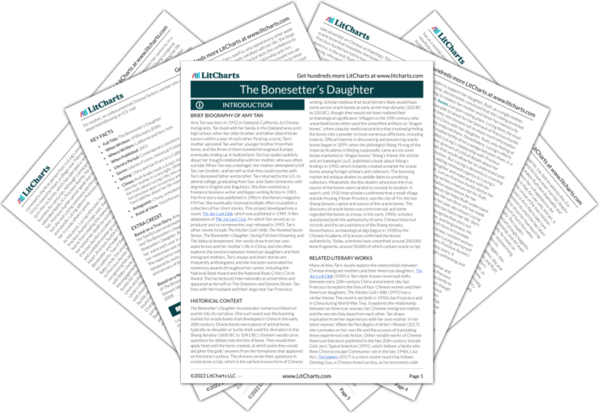Even though Art’s family members are guests of Ruth’s, they fail to show her the proper respect, as Fia and Dory make fun of the Chinese dishes, ultimately demonstrating an overall lack of tolerance for other cultures and traditions. Ruth has faced similar experiences throughout her life, and though one might assume that such things would make her angry, she seems to have a different way of responding: namely, by accommodating others and overlooking the many ways in which the people around her demonstrate cultural insensitivity and racism.
